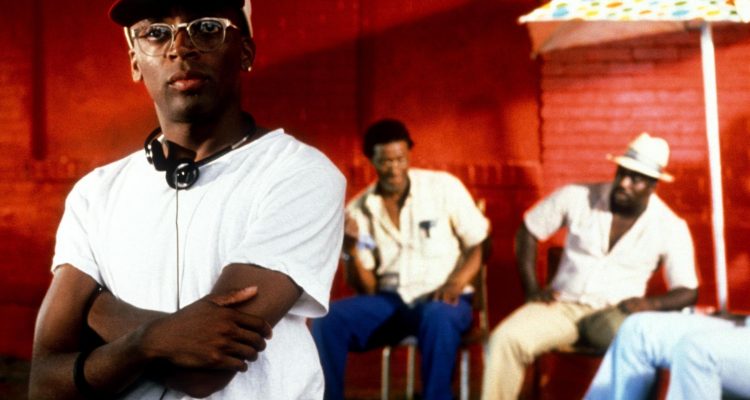 “Kobe Doin’ Work” (2009)
“Kobe Doin’ Work” (2009)
The element that usually defines all the great sports movies in cinema is a filmmaker that understands the movie, while about a particular sport, is ultimately not about those games at all. It’s about the human beings behind them, their adversities, their relatable conflicts, problems and the special-something human qualities that allow them to overcome their limitations and win. Sports movies, in that sense, are the very fundamental basics of drama, and are therefore universal. Perhaps Spike Lee took this idea to heart when creating the documentary “Kobe Doin’ Work.” It’s not about the sport, or in this case basketball, it’s about an individual who excels, and utilizing 30-odd cameras, Lee zeroes in on basketball superstar Kobe Bryant during one day of the 2007–08 Los Angeles Lakers season. Unfortunately, in doing so, Lee creates a movie so myopic that it’s anything but universal, and only for the hardcore basketball or Bryant fan. For 83 minutes, “Kobe Doin’ Work” plays out like a real-time hoops game, only with Bryant himself narrating what he was thinking at the time (in that respect it feels more like a brand-u-mentary). The doc occasionally breaks for half-time and spends time in the locker room post-game, but rarely does it illuminate much other than the fact that Bryant is seasoned player who thoughtfully understands his game, and for a superstar, is a rather generous player. But “Kobe Doin’ Work” is generally dry as the sahara unless you’re a basketball fanatic. Something that Spike Lee and the ESPN’ers who footed the bill may be, but it sure leaves a lot of other people standing in the cold nosebleed section. Strangely inessential and a rare documentary miss for Lee. [C-]
“If God Is Willing and da Creek Don’t Rise” (2010)
Lee’s follow-up to his monumental 2006 documentary “When the Levees Broke,” “If God Is Willing and Da Creek Don’t Rise” is frequently compelling but just as often feels like a compendium of footnotes, rather than an entirely new documentary. It’s more “Silmarillion” than “Lord of the Rings,” if you know what we mean. Part of this has to do with the scattershot nature of the documentary, ostensibly about Hurricane Katrina’s aftermath, which includes everything from the Patriots winning the Super Bowl to a federal suit brought against the Army Corps of Engineers to the shoddy construction of new housing developments to the BP oil spill. Lee is a talented documentarian, and you can tell that his subjects feel at home in front of the camera (and him). Memorably, one resident of the water-ravaged lower ninth ward describes one of the new housing structures as, “Like a supermodel – pretty on the outside but on the inside it’s bulimic, anorexic, and probably full of drugs.” But it somehow feels (pardon the pun) watered down, not only by the expansiveness of his first documentary but by everything else that came out between then and now. This includes things like Harry Shearer‘s pointed documentary “The Big Uneasy,” and books like Douglas Brinkley’s “The Great Deluge” and Mark Jacobson‘s brilliant “The Lampshade.” Also, real life New Orleans residents that were featured in the initial documentary went on to appear in HBO’s “Treme,” a dramatized account of the same material. While it’s totally brilliant in a lot of places, it feels like a postscript more than anything else, and not a particularly happy one at that. [B+]
– Rodrigo Perez, Oliver Lyttelton, Drew Taylor, Christopher Bell, Kevin Jagernauth, Jessica Kiang, Sam Chater, Mark Zhuravsky

